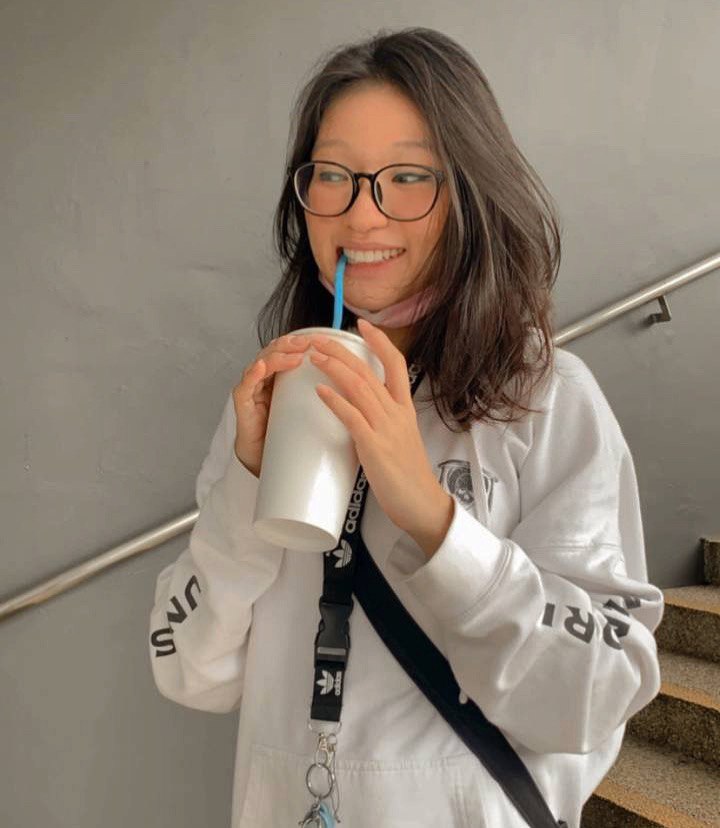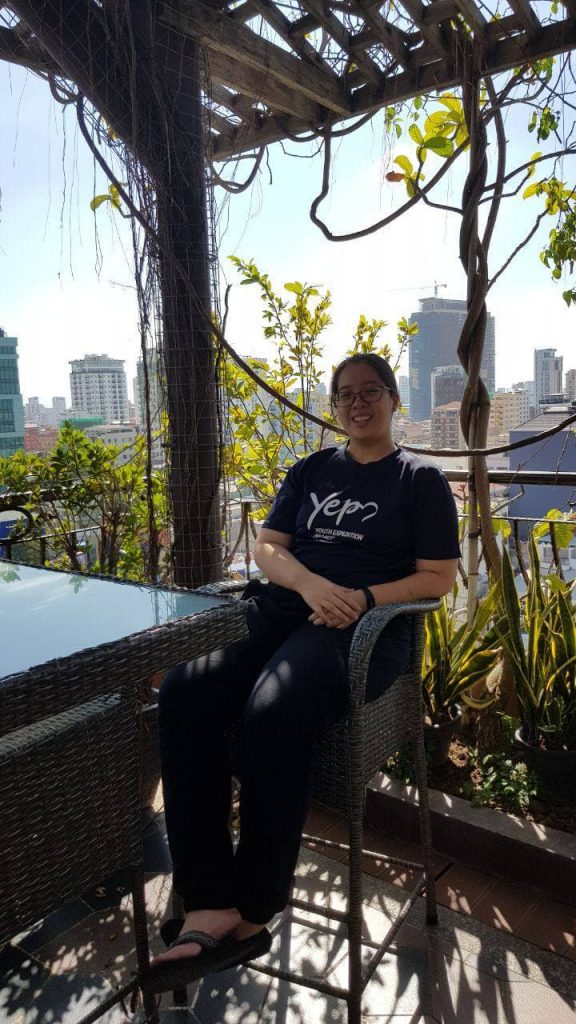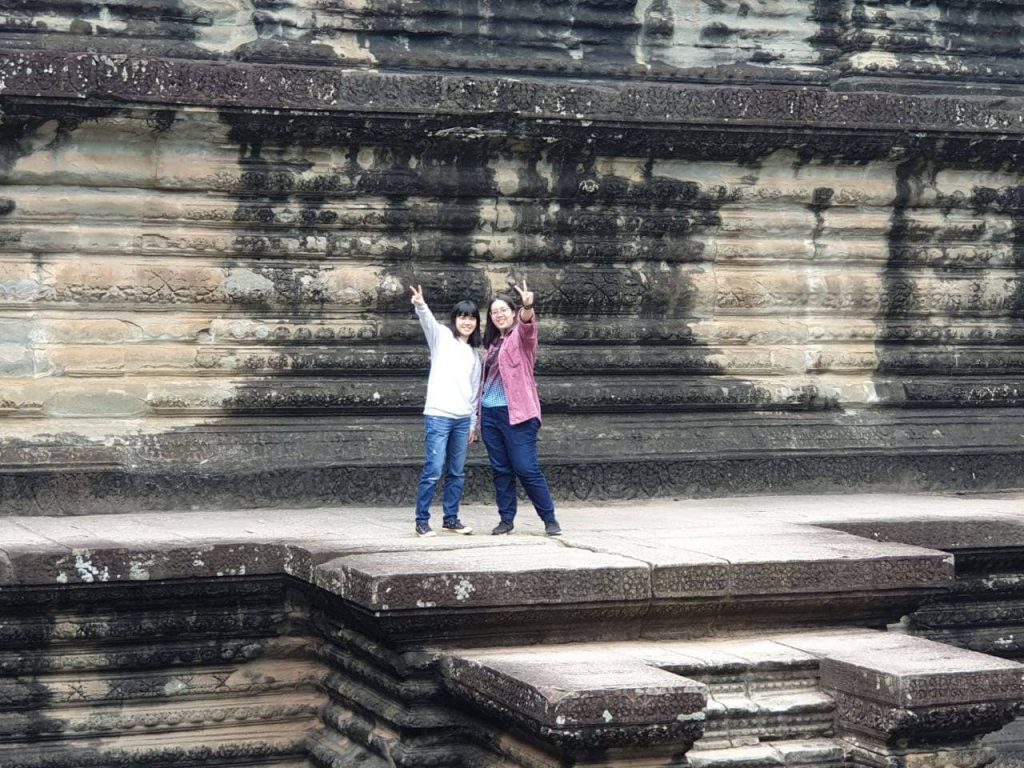To some students, serving an internship in a local firm is daunting enough. Yet, others are game to take up cross-border opportunities, despite knowing that it can be challenging to overcome language barriers, navigate cultural differences while learning the ropes at the same time.
The UrbanWire speaks to Lynette Lim and Elizabeth Lim, who both have cross-border internship experiences, on what they have gained from their stints.
Lynette Lim: Learning to Embrace New Cultures

Photo courtesy of Lynette Lim
As someone who is actively involved in charity work, Lynette Lim has always been curious about the people who work behind the scenes in non-profit organisations (NPO).
This led the 20-year-old to apply for a three-month remote internship last year with WISE – WASH in Southeast Asia, an NPO which is active in Indonesia, Cambodia and Singapore. WISE works on water, sanitation, hygiene (WASH) as well as waste management issues, while also collaborating on causes related to public health, inclusion and climate change.
This opportunity came to Lynette through the Asia-Ready Exposure Programme (AEP). Launched by the National Youth Council (NYC), this initiative aims to empower young Singaporeans to be Asia-ready by providing opportunities for cultural and economic exposure to ASEAN member states, China and India (ACI), while strengthening their competencies in building friendships and networks within the region. NYC works closely with partners from a wide array of industries to co-develop ACI-focused resources, such as webinars, reading materials and experiential cross-cultural projects.
Lynette was still a Year 2 Accountancy student in Ngee Ann Polytechnic at the time of application. Students from her course typically complete their professional attachment in Year 3, so her internship with WISE is not mandatory.
But she was keen to take up the opportunity for more international exposure. With the flexible hours and remote work arrangement, she was also able to juggle work and school at the same time.
For three months in late 2020, Lynette served as a management intern at WISE. Her main task was to get WISE registered as a certified charity in Cambodia and Indonesia. Together with 15 volunteers from Cambodia and Indonesia, they conducted research on both countries’ legal frameworks and prepared the required documents for the registration.
Lynette coordinated the volunteers’ works. She took minutes, delegated tasks and tracked everyone’s progress to make sure they were able to meet the deadlines.
She observed that Singapore’s work culture is drastically different from that in other ASEAN countries. “I think in Singapore, a lot of people are very task-oriented and get things done very fast,” she said.
On the other hand, adopting a slower pace when it comes to work is definitely not something frowned upon in these other countries.
Her biggest takeaway from the internship was: It’s important to hold her judgment and make an effort to understand everyone’s circumstance, especially when working with colleagues in another country. She recalled an instance when she tried to reach out to a volunteer via texts, calls and emails but to no avail. She was upset and reported the issue to her Singapore-based supervisor, also one of the co-founders of WISE.
Her supervisor advised her to be patient as many overseas volunteers could be uncontactable due to circumstances beyond their control. True enough, Lynette later learnt that the Cambodian volunteer’s internet connection was down.
While it’s beneficial to have a result-oriented mindset, Lynette realised there are other skillsets that are equally important, such as managing relationships with stakeholders from other countries and being able to appreciate cultural differences.
Elizabeth Lim: Immersing in a New Culture

Photo courtesy of Elizabeth Lim
Elizabeth Lim was thrilled when she knew she could live and work in Cambodia in 2019.
Her fascination with the ASEAN country started with a family trip to Siem Reap in 2017, when she fell in love with the city’s rich history and ancient temples instantly. So when presented with a chance to do a five-month internship in Cambodia as part of her school’s mandatory internship, the then final-year Mass Communication student in Ngee Ann Polytechnic had to grab it.
“I was hungry to return to the country and learn more about [it],” she shared. “I also wanted the chance to see whether I was strong enough to survive in a foreign country by myself without my parents.”
Now a Year 1 Media and Communications student in The University of Melbourne, Elizabeth looks back on her overseas stint and is grateful that it has changed her for the better.
As an intern at Quantum Endorphine Digital, a PR and digital marketing agency, Elizabeth had to write articles on Cambodia’s tech start-ups and take care of some branding projects. These tasks allowed her to apply what she’d learnt in school to build a good portfolio.
But to her, the most valuable part of this internship was that it gave her a chance to learn about another ASEAN country through her daily interactions with the locals.
“The Cambodians I met and got to know were always willing to tell me more about their country and their experiences, and I really enjoyed how willing they were to share about their lives,” Elizabeth reminisced.
But she also stressed that such interactions happen “only if you make it happen”.
“You have to choose to take the first step and get to know the locals and make genuine connections, because it is just as easy to only make friends with fellow expats in a country, and not get to know the people who really live in the country,” she added.

Photo courtesy of Elizabeth Lim
Go For The Adventure
Both Elizabeth and Lynette urge young Singaporeans to step beyond their comfort zones and give overseas opportunities a go.
Even as global travel is restricted in the midst of the Covid-19 pandemic, one can still look out for remote internships or virtual programmes that can help them get cross-border exposure and broaden their network of friends, particularly in ASEAN, a 10-country bloc that is home to some of the fastest growing economies.
Young Singaporeans who understand the people, culture and economic developments in our neighbouring countries are likely to have a better chance of benefiting from the market opportunities in the region.
Lynette added that students, in particular, should take part in programmes that allow them to work with foreign colleagues since such opportunities don’t come by often.
“I think it’s very important to have these experiences because we tend to have this myopic view that everywhere is like Singapore,” she said, adding that one will benefit from having a broader horizon.
If you would like to deepen your sociocultural and economic understanding of ASEAN countries, China or India, then hop over to this page to find out more about the Asia-Ready Exposure Programme (AEP).
This article is sponsored by the National Youth Council.
